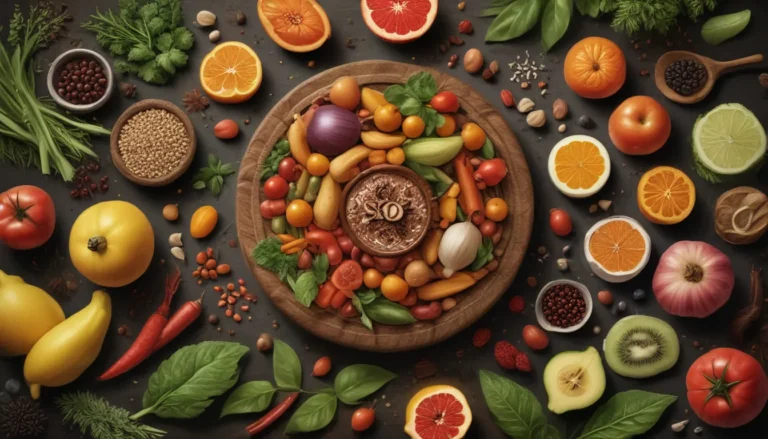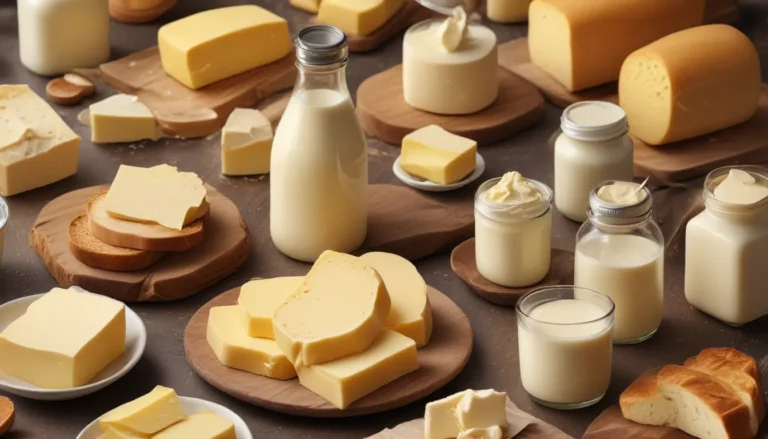The pictures in our articles might not always show exactly what the text is talking about. We use these images to make the article more interesting and eye-catching. They are there to add to the text, but not to replace it or show every detail.
Are you looking to add more nutritious and delicious foods to your diet? Look no further than masoor dal, also known as red lentils. This versatile legume has been a staple in Indian, Middle Eastern, and Mediterranean cuisines for centuries, and for good reason. Packed with essential vitamins, minerals, and antioxidants, masoor dal offers a wide range of health benefits that can contribute to your overall well-being.
In this article, we will delve into 18 key masoor dal nutrition facts that highlight its nutritional value and how it can support your health goals. Whether you are a vegetarian, vegan, or simply looking to incorporate more plant-based foods into your meals, masoor dal is a fantastic addition to your pantry and meal rotation.
Unlocking the Power of Masoor Dal
Let's explore some of the amazing benefits that masoor dal has to offer:
High in Protein
Masoor dal is a protein-packed superhero for vegetarians and vegans, providing around 18 grams of protein per cup of cooked dal. Protein is essential for muscle growth and repair, as well as keeping you feeling full for longer periods.
Rich in Dietary Fiber
One of the standout features of masoor dal is its high dietary fiber content. Fiber is crucial for promoting healthy digestion, preventing constipation, and aiding in weight management by keeping you satiated.
Good Source of Iron
Masoor dal is a good source of iron, an essential mineral that supports the production of healthy red blood cells and helps transport oxygen throughout the body. Including masoor dal in your diet can help prevent iron deficiency anemia.
Low in Fat
If you're looking to maintain a healthy weight or reduce your overall fat intake, masoor dal is a great option. It is low in fat but still incredibly nutritious and filling, making it a perfect choice for meals.
Packed with Essential Nutrients
Masoor dal is a powerhouse of essential nutrients, including vitamins like folate, vitamin B6, and thiamine, as well as minerals like potassium, magnesium, and phosphorus. These nutrients play various roles in supporting your overall health and well-being.
Spotlight on Masoor Dal’s Health Benefits
In addition to its nutrient content, masoor dal offers a plethora of health benefits that can enhance your well-being:
- Blood Sugar Control: The high fiber content in masoor dal helps regulate blood sugar levels, leading to a steady rise in blood sugar levels and supporting overall blood sugar control.
- Heart Health: Masoor dal is low in cholesterol and saturated fat, making it beneficial for heart health. Including it in your diet can help maintain healthy cholesterol levels and reduce the risk of heart disease.
- Immunity Boost: Masoor dal contains antioxidants and micronutrients that support immune function, helping your body combat infections and diseases effectively.
- Weight Management: The combination of high fiber and protein in masoor dal can aid in weight management by promoting satiety and reducing the likelihood of overeating.
- Healthy Skin: The vitamins and minerals in masoor dal contribute to healthy skin from within, promoting a clear and radiant complexion.
Embracing Masoor Dal in Your Diet
Incorporating masoor dal into your meals is simple and delicious. Here are some ways you can enjoy this nutritious legume:
- Versatile Cooking: Masoor dal can be used in a variety of recipes, including soups, stews, curries, salads, and even spreads. Get creative and experiment with different dishes to reap the benefits of masoor dal in your diet.
Conclusion: A Nutrient-Packed Addition
In conclusion, masoor dal is not only flavorful but also incredibly nutritious. It offers a host of health benefits, including supporting muscle growth, aiding digestion, and promoting overall well-being. Whether you're looking to maintain a healthy weight, boost your energy levels, or improve your skin, masoor dal is a fantastic choice to add to your meals.
So, why wait? Start exploring the wonderful world of masoor dal and experience the health benefits it has to offer!
FAQs:
- How many calories are in masoor dal? A 100-gram serving of masoor dal contains approximately 352 calories.
- Is masoor dal a good source of protein? Yes, masoor dal is an excellent plant-based source of protein, providing about 24 grams of protein per 100-gram serving.
- What are the health benefits of masoor dal? Masoor dal offers several health benefits, including aiding digestion, promoting healthy gut flora, and providing essential vitamins and minerals.
- Can masoor dal help with weight loss? Masoor dal is a great choice for weight loss due to its low-fat, high-fiber, and high-protein content, which can aid in controlling appetite and promoting feelings of fullness.
- How can I incorporate masoor dal into my diet? Masoor dal can be used in various dishes, including soups, stews, curries, salads, spreads, and dips. Experiment with different recipes to enjoy the nutritional benefits of masoor dal in your meals.
We hope this article has been helpful in shedding light on the nutritional benefits of masoor dal and inspiring you to include this wonderful legume in your diet. Happy cooking and happy eating!






